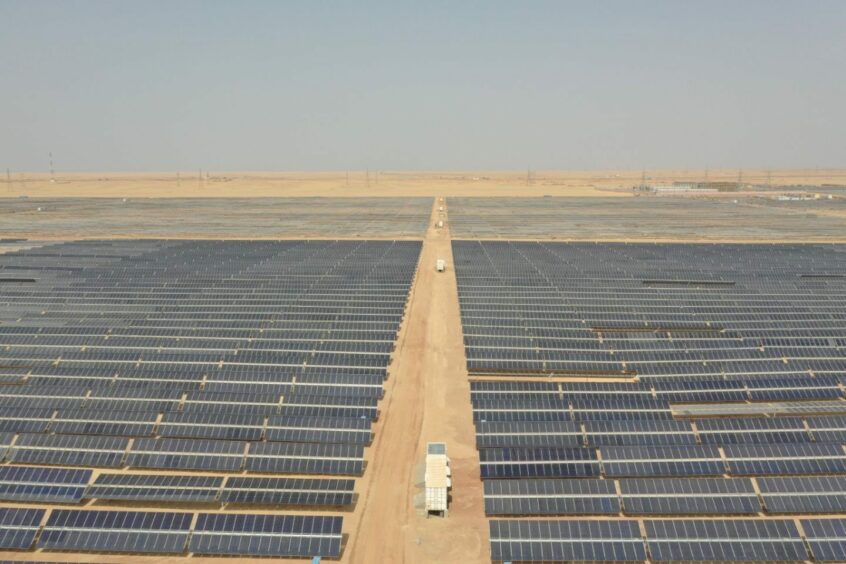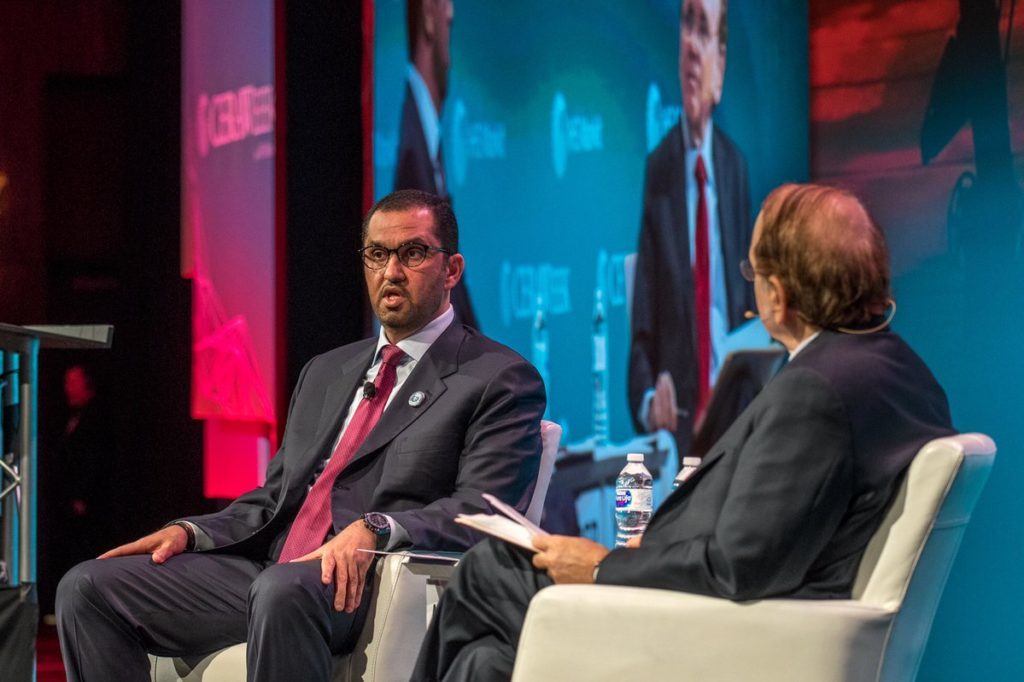
When asked why he robbed banks, Willie Sutton, the renowned American bank robber, famously explained: “’Cause that’s where the money is!” And while I am not for one second suggesting an outright heist, I do believe developing countries would benefit from Willie Sutton’s example at the upcoming climate change conversations in Dubai.
The nations that pledged $100 billion a year to support the energy transition of developing nations have failed to deliver since 2009. Yet, it is impossible to achieve a reduction global emission without funding developing countries’ transition from fossil fuels to clean alternatives. They will be the principal source of future global energy demand.
The monumental costs associated with the transition (estimates suggest up to $1 trillion a year through 2030 ) seemingly puts climate goals beyond our grasp.
It is time developing countries take a page from the Willie Sutton play book and look to the oil industry for funding their energy transition – that’s where the money is.
Climate activists are sceptical about achieving progress at the United Nations COP28. They lay the blame for the predicted lack of progress on the United Arab Emirates (UAE) on the COP’s host. They argue that the UAE, as one of the world’s major oil exporters, lacks the objectivity or commitment required to push for real change.
Their scepticism is further fueled by the UAE’s choice of Dr. Sultan Al Jaber, the CEO of the UAE’s national oil company, Adnoc, as the COP’s President Designate.
But the very criticisms levelled at the UAE and Dr. Al Jaber can be opportunities in the hands of developing countries.
Many developing countries rely upon the oil industry as a dominant source of capital, access to credit, and employment – as well as future capital. As an advocate who has oil industry chops, understands the energy transition, and knows what is needed to make a deal, Al Jaber can be a formidable champion.
In his latest address at ADIPEC, Al Jaber declared that “it is time [for the oil industry] to silence the sceptics by applying scale, capital, and technology to deliver outcomes”.
Developing countries should treat Al Jaber’s speech at ADIPEC as an offer – and pocket it.
Given the financing shortfall, Al Jaber might consider a strategy with the oil industry similar to the one advocated by another experienced figure in the oil industry, the late Secretary General of OPEC, Mohammed Barkindo.
Barkindo, like Al Jaber, supported the Paris Agreement and endorsed the energy transition. When I met him in 2019, he explained that his challenge would be to steer OPEC and OPEC+ member states through the complexities of the global energy transition. He knew that many OPEC members did not themselves have the capital to fund their own green energy transitions.
The issue was personal for Barkindo. His own country, Nigeria, has the world’s largest unelectrified population, with 86 million lacking access to power. It is also a leading member of OPEC, with enormous oil reserves. Unfortunately, it lacks the capital to fund its green transition. Policy instruments and public-private partnerships need to be redesigned to attract finance and scale market opportunities for renewable project developers in Nigeria.
The big idea Barkindo floated to OPEC’s members was that investments being made from oil production could be harnessed to simultaneously finance the energy transition. Barkindo’s strategy would have eliminated the need for sovereign guarantees typically required to finance renewable energy projects and would scale renewables at much greater speed than currently possible.
Unfortunately, Barkindo’s untimely death ended the OPEC transition finance project. Al Jaber can take up where Barkindo left off.
The UAE holds another attraction for developing countries: several of the world’s largest sovereign wealth funds (SWFs). These are the investment funds owned and managed by governments, typically funded by revenues from sales of natural resources such as oil.
SWFs presently have nearly $12 trillion in assets under management (AUM). In the Gulf Cooperation Council (GCC), oil and gas revenues since 2018 have fuelled the growth of their SWFs by 70%, resulting in an estimated $3.6 trillion in AUM, the largest share of any region in the world. Norway’s Government Pension Global Fund ($1.42 trillion) is the largest.
The International Energy Agency (IEA) projects that there will be “a steady increase in crude oil and … [c]ondensate production” through 2050. As a result, by 2050, oil-funded SWFs will be enormous.
Developing countries can use this COP to propose a framework, drawing on Barkindo’s proposals, for SWFs to finance energy projects. If the political risk of investing in developing countries can be addressed, SWFs should welcome such a proposal.
In fact, if the rumours are true, the UAE, will propose a multi-billion-dollar fund to invest in the energy transition.
However, the developing countries need trillions, not billions, of dollars. That’s why, if I were Willie Sutton, I would be heading to Dubai.
Jonathan Cahn is a public interest international lawyer specializing in emerging markets and energy finance. Cahn has represented leading investors in significant cross-border energy, natural resources and infrastructure projects in the Middle East, Africa, Latin America, North America, Russia and Central Asia for more than 20 years.
